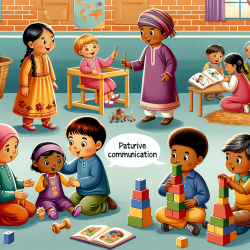Empowering Practitioners with Data: Insights from Glycosylation Analysis
In the realm of speech-language pathology, data-driven decisions are crucial for creating impactful outcomes for children. The recent research article, "NIST Interlaboratory Study on Glycosylation Analysis of Monoclonal Antibodies: Comparison of Results from Diverse Analytical Methods," provides valuable insights that can be translated into practical applications for practitioners. This study highlights the importance of understanding glycosylation in monoclonal antibodies (mAbs), a topic that, while seemingly distant from speech-language pathology, underscores the importance of precision and consensus in scientific endeavors.
Understanding Glycosylation and Its Implications
Glycosylation is a critical post-translational modification of proteins that can significantly impact drug safety and efficacy. The study involved 76 laboratories worldwide, each employing various analytical methods to assess glycosylation in mAbs. The diversity of methods and results underscores the complexity of glycosylation analysis and the need for harmonization in methodologies.
Key Findings and Their Relevance
The study's principal objective was to compare results across different analytical methods used in glycosylation analysis. It revealed that while the number of glycan compositions identified varied widely among laboratories, consensus values could be established. This consensus did not depend on the specific method or laboratory type, highlighting the importance of measurement repeatability over methodological differences.
Implications for Practitioners
For practitioners in speech-language pathology, the study serves as a reminder of the importance of standardized methods and consensus in clinical practice. Just as glycosylation analysis requires harmonization for reliable results, speech-language assessments and interventions benefit from standardized protocols and data-driven approaches.
- Measurement Repeatability: Just as in glycosylation analysis, ensuring repeatability in assessments can lead to more reliable outcomes in therapy.
- Standardization: Adopting standardized methods can enhance the comparability of results across different settings, much like the need for harmonization in glycosylation methods.
- Data-Driven Decisions: Utilizing data to inform decisions, whether in therapy planning or outcome measurement, is crucial for achieving the best results for children.
Encouraging Further Research
The study also highlights the need for ongoing research and collaboration to refine analytical methods. For speech-language pathologists, this translates into a call for continuous professional development and research engagement to stay abreast of best practices and emerging evidence.
To read the original research paper, please follow this link: NIST Interlaboratory Study on Glycosylation Analysis of Monoclonal Antibodies: Comparison of Results from Diverse Analytical Methods.










